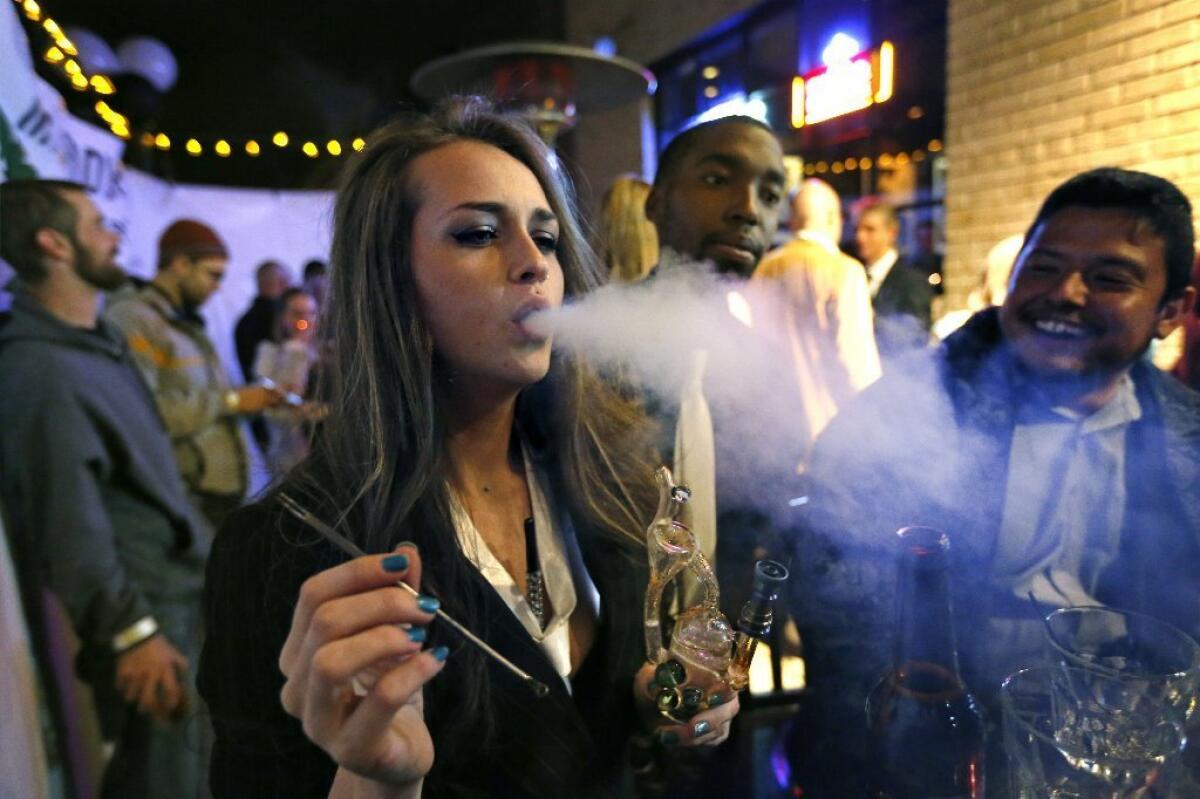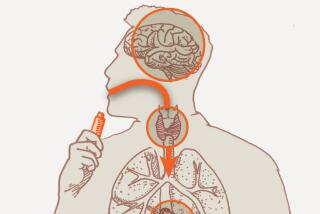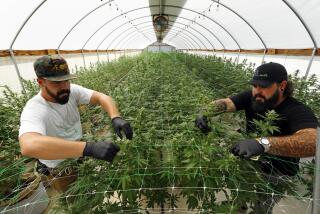Opinion: Smoke weed, turn into a pothead? Not so fast.

Los Angeles Times Opinion LA blogger Paul Whitefield argues that a just-released study reporting differences in the brain scans of marijuana consumers versus non-users may just validate the stereotype that those who ingest the substance become “potheads.”
However, a careful review of the study finds nothing of the sort.
What did the study find? Using high-resolution MRI imaging, scientists identified specific changes in aspects of brain morphometry (specifically gray matter density, volume and shape) that was correlated with marijuana exposure of more than 10 joints per week. (Because researchers performed only a single MRI session, they could not say definitively whether these changes were, in fact, caused by cannabis or whether they existed before subjects’ use of the plant — a key point that the study’s lead author recently felt the need to publicly reaffirm in light of numerous media reports that erroneously claimed otherwise.) Notably, however, these changes did not appear to be associated with any overt adverse effects in cognition or behavior.
ABOUT BLOWBACK: FAQs and submission policy
For instance, both the cases (20 marijuana users) and controls (20 non-users) were recruited from local universities, undermining the notion that the alleged potheads were any more academically challenged than their non-using peers. Further, as summarized by HealthDay: “Psychiatric interviews revealed that the pot smokers did not meet criteria for drug dependence. For example, marijuana use did not interfere with their studies, work or other activities, and they had not needed to increase the amount they used to get the same high.”
In other words, case subjects and controls appeared to function similarly in their professional and academic endeavors.
That finding should hardly come as a surprise. Dozens of separate neuro-cognitive studies of far larger sample sizes find no substantial, systematic effect of long-term, regular cannabis consumption on brain functioning once the users have abstained from the drug. As concluded in one recent meta-analysis of 33 such studies, published in the journal Experimental and Clinical Pharmacology: “As hypothesized, the meta-analysis conducted on studies evaluating users after at least 25 days of abstention found no residual effects on cognitive performance.... These results fail to support the idea that heavy cannabis use may result in long-term, persistent effects on neuro-psychological functioning.”
This is not to say that consuming marijuana is not without potential risk, especially among young people. However, after decades of marijuana use by significant portions of the public (despite the plant’s prohibition), it is apparent that these associated potential risks are not so great as to warrant the continued arrest of some 700,000 Americans annually for possessing the plant. Nor do these potential risks justify marijuana’s present status as a federally Schedule I controlled substance, a classification that equates the purported dangers of pot to those of heroin.
It is time for a reality check. There are numerous documented adverse health consequences associated with alcohol, tobacco and prescription pharmaceuticals, all of which are far more dangerous and costlier to society than the responsible adult use of cannabis. It’s precisely because of these consequences that these products are legally regulated and their use is restricted to particular consumers and specific settings.
Similarly, a pragmatic regulatory framework that allows for the legal, licensed commercial production and retail adult sale of marijuana but restricts its use among young people -- coupled with a legal environment that fosters open, honest dialog between parents and children about cannabis’ potential harms -- best reduces the risks associated with the plant’s consumption or abuse.
The ongoing criminalization of the cannabis plant, and the practice of arresting and prosecuting those adults who consume it responsibly, is a disproportionate public policy response to what is, at worst, a public health concern. It is not a criminal justice issue. The findings and implications of this latest study, even if one is to take them at face value, do nothing to change this fact.
ALSO:
California needs a rainy-day fund that works
Don’t be fooled by the pope’s latest move: Carnival time is over
How Bloomberg plans to use the NRA’s tactics in the gun control fight
Paul Armentano is the deputy director of NORML, the National Organization for the Reform of Marijuana Laws, and he is the coauthor of the book “Marijuana Is Safer: So Why Are We Driving People to Drink?” He lives in Vallejo.
More to Read
Sign up for Essential California
The most important California stories and recommendations in your inbox every morning.
You may occasionally receive promotional content from the Los Angeles Times.










